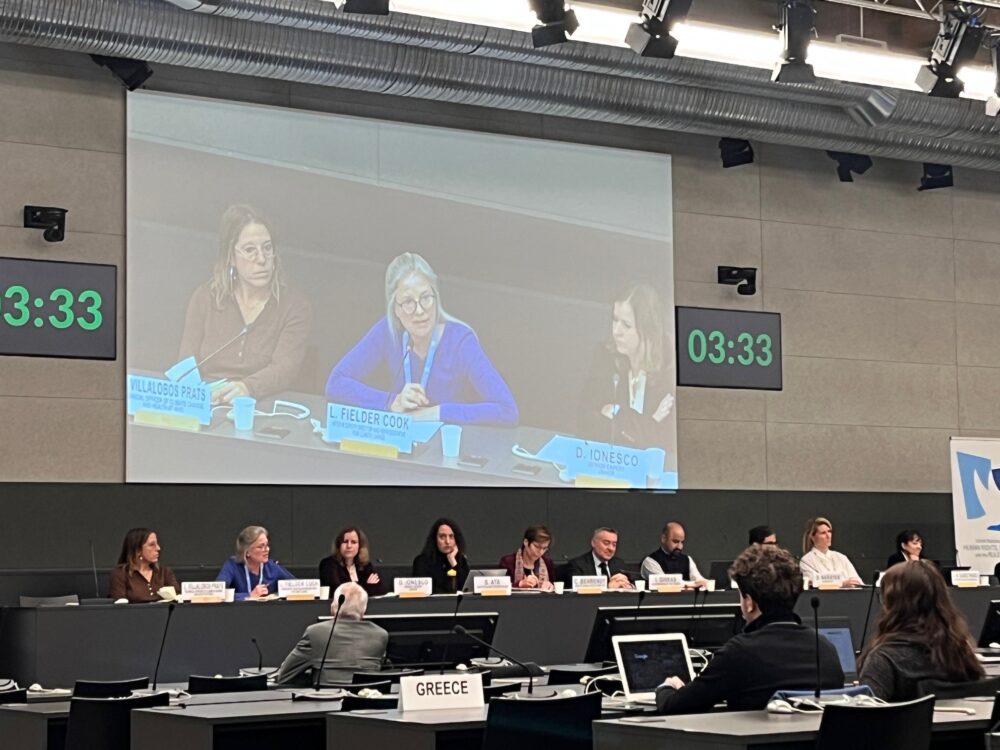Lindsey Fielder Cook, QUNO’s Representative on the Human Impacts of Climate Change, pointed out clear pathways and criteria to achieve sustainable and equitable energy access at the Forum on Human Rights, Democracy and the Rule of Law. In its 5th session, the Forum addressed the theme: “Democracy and Climate Change: Focusing on Solutions”, held in Geneva on the 13th and 14th of October. Her contribution can be watched here.
Joining the panel on “Interconnected Solutions to Interconnected Problems”, Lindsey emphasized that democracies prioritizing the question, “Is this best for society?” rather than “Is this best for the economy?”, are more likely to deliver a sustainable energy transition experienced as fair and effective. In addition, energy transitions that integrate human rights-based approaches are less likely to face societal backlash. Lindsey advised asking the following questions when evaluating sustainable energy policies:
- Who benefits?
- Who owns it?
- Are polluters going to be held accountable?
- Do polluters clean up?
- Do our policies help the poorest in achieving energy independence?
- Do we encourage community ownership?
Lindsey invoked the words of recently released from prison Egyptian/British human rights voice, Alaa Abd el-Fattah, to highlight a divide in global energy transition dynamics, suggesting that we are facing a “deadlock of imagination” in the Global North and a “deadlock of possibility” in the Global South.Other panelists provided clear examples and best practices on rights-based solutions in the sectors of health, water, social protection, food, and rights-protected displacement.
This Forum is an initiative of the United Nations Human Rights Council, serving as a platform for states, experts, and civil society to exchange best practices in securing human rights through democratic governance. The 2025 session was held under the presidency of Greece. Some of the trends observed at the Forum included an increase in references to the rights of nature and ecocide, which QUNO follows as a ‘watching brief’. Additionally, multiple speakers and states consistently referenced the relevance of the ICJ’s Advisory Opinion on the obligations of states regarding climate change—and emphasized the need for its incorporation into both national and international climate policies and negotiations.
Please find the QUNO’s full written statement available for download here.







